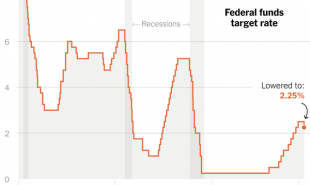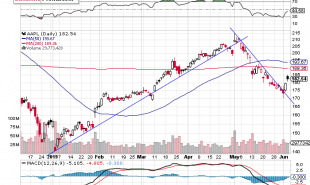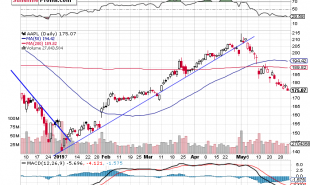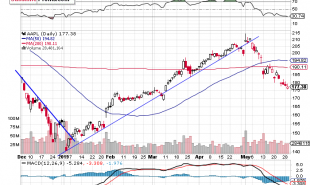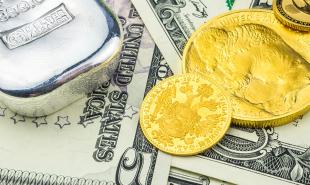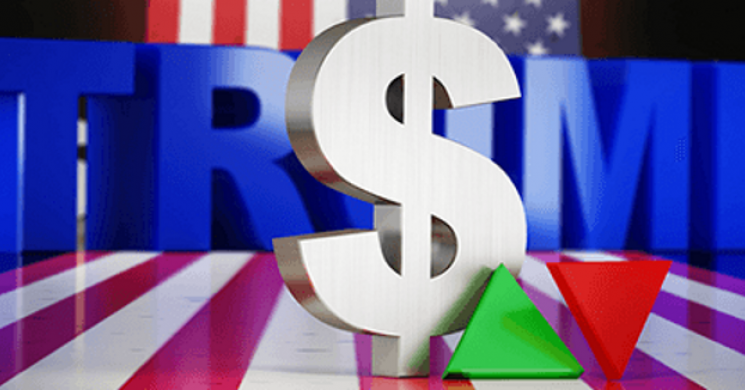
What the Dollar Predicts for Trump’s Presidency
- The dollar’s track record under five U.S. presidents. What should Trump learn from it?...
- What a weak dollar means for the economy… and what it means for the stock market...
“A strong dollar is a strong president, and a weak dollar is a weak president,” argues former Trump economic adviser Steven Moore in The Washington Post.
via Brian Maher and thedailyreckoning.com
The Post sums up Moore’s thoughts after this fashion:
Historically, successful presidents have supervised the economy when the dollar was strong, and the currency has been weak while unsuccessful presidents were in office.
“For instance,” the Post adds, “Presidents Nixon, Ford and Carter wrestled with a weak dollar throughout their terms, while the greenback recorded gains under Presidents Reagan and Clinton.”
But the current occupant of 1600 Pennsylvania Ave. might have a crow to pick with his former adviser...
“I think our dollar is getting too strong,” Trump told The Wall Street Journal last week.
A weaker dollar makes U.S. goods cheaper overseas, boosting U.S. exports. More exports in turn mean more jobs… and rising economic fortunes at home.
Making America great again and such.
But is Moore right... and Trump wrong?
Jim Rickards argues a strong dollar attracts foreign investment for American business. And that heightened investment creates more American jobs:
The reality is a weak dollar doesn’t promote jobs. It just promotes inflation. You’re actually better off with a strong currency because that attracts capital from overseas. People want to invest in the strong currency area, and it’s that investment and those capital inflows that actually create the jobs.
And of course a stronger dollar stretches the American consumer’s wallet.
Meanwhile, analyst Ben Carlson of Ritholtz Wealth Management argues that the correlation between dollar strength and U.S. economic health is “murky at best.”
For example, Carlson argues, “The dollar as measured by the Federal Reserve’s broad trade-weighted index fell in the second half of the 1980s and soared in the 1990s, but both decades saw robust growth.”
On the other hand — and isn’t there always the other hand?:
“It weakened sharply in the 2000s and has rebounded so far in the 2010s, and both decades experienced below-average growth.”
The answer, clear as mud: A weaker dollar is good for the economy — unless it isn’t.
But while the relationship between the dollar and the economy is murky at best… this Carlson fellow argues the relationship between the dollar and the U.S. stock market is much stronger.
And that relationship is?
Carlson argues a stronger dollar is a blessing for the U.S. stock market. And a weaker dollar isn’t:
“When the dollar is strong, U.S. stocks tend to outperform international equities. And when the dollar is weak, international stocks tend to outperform.”
As this table going back to 1995 reveals, U.S. stocks far outperformed foreign stocks when the dollar was king. And underperformed foreign stocks when it was weak:

Carlson:
The impact on stock markets around the globe during these dollar regimes is stark… A strong dollar propelled U.S. stocks to huge absolute and relative outperformance starting in the mid-1990s and once again starting during the financial crisis. When the dollar fell during the mid-2000s, we saw this relationship reverse.
Where does that bring us today?
Goldman Sachs has been bullish on the dollar recently. But now it says the strong dollar story “no longer warrants a place among our ‘Top Trades.’”
We mention — en passant of course — that Trump’s economic team is peopled largely by ex-Goldman folks, including Treasury Secretary Steve Mnuchin.
Infer from that what you will.
But Carlson says, “If the greenback does begin to move lower or even simply stop its upward trajectory, we could see substantial outperformance of foreign stocks…”
Something to watch.
Trump wants a weaker dollar. But he can only jawbone it lower so much. And much depends on the Fed (more on that below).
This much we do know: The S&P’s up about 12% since the election. The Dow’s up a similar amount.
And if it’s true that a weaker dollar means a weaker U.S. stock market as the evidence suggests, Trump might want to be careful what he wishes for...
Read more by Soren K.Group


